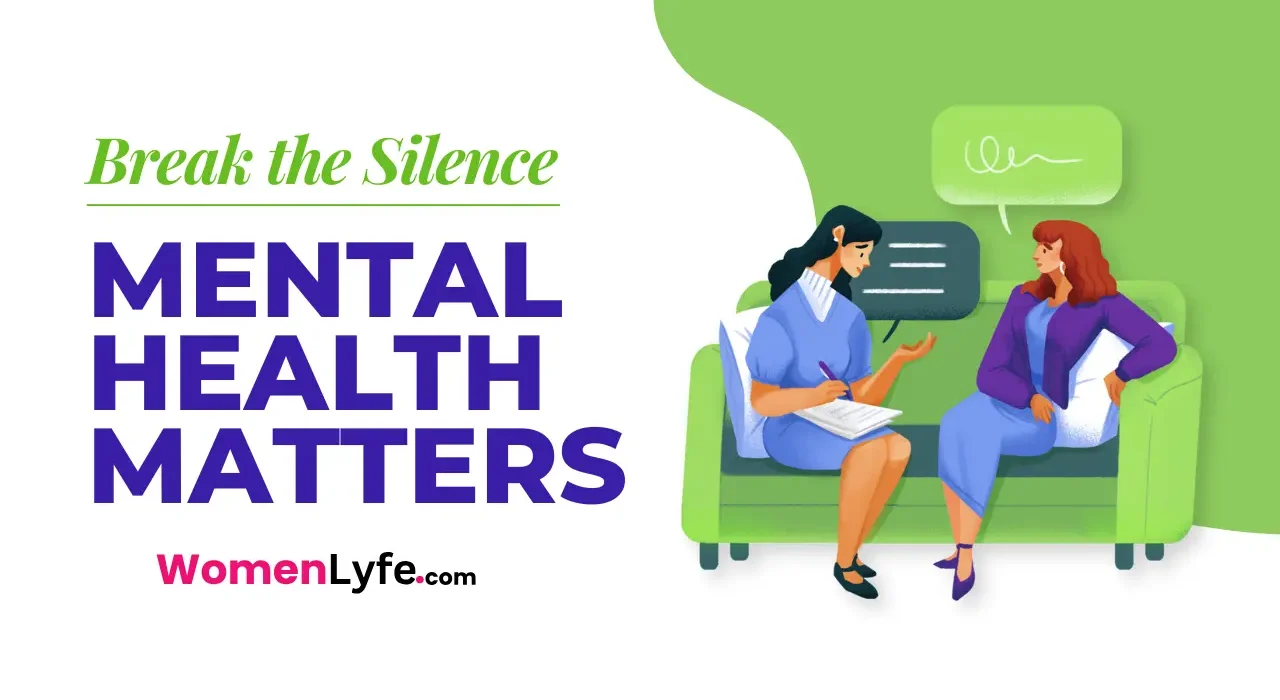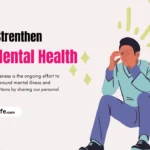Mental health is just as important as physical health, yet it often doesn’t receive the attention it deserves. In recent years, conversations around mental health have become more open, but there’s still a long road ahead. Raising awareness is crucial — not just for those struggling but for society as a whole. May month is celebrated as mental awareness month in 2025.
In this article, we’ll explore the importance of mental health awareness, the real challenges people face, and practical ways you can help make a difference.
Why Mental Health Awareness Matters
According to the National Alliance on Mental Illness (NAMI), approximately 1 in 5 adults in the U.S. experience mental illness each year. Despite this, many individuals suffer in silence due to fear, stigma, and misunderstanding.
Key reasons why mental health awareness is critical:
- Early Detection: Recognizing symptoms early can lead to better treatment outcomes.
- Reducing Stigma: Open discussions can break stereotypes and biases.
- Encouraging Support: Awareness motivates people to seek help without shame.
- Promoting Healthier Communities: Mental well-being strengthens families, workplaces, and society at large.
Common Mental Health Conditions You Should Know About
Understanding different mental health conditions can help us be more compassionate and informed. Some of the most common include:
| Mental Health Condition | Common Symptoms |
|---|---|
| Depression | Persistent sadness, loss of interest |
| Anxiety Disorders | Excessive worry, panic attacks |
| Bipolar Disorder | Extreme mood swings |
| PTSD (Post-Traumatic Stress Disorder) | Flashbacks, severe anxiety |
| OCD (Obsessive-Compulsive Disorder) | Repetitive thoughts and behaviors |
Source: National Institute of Mental Health (NIMH)
Signs of Mental Health Issues
Recognizing when someone is having a hard time is a critical part of mental health awareness.
Signs Someone Might Be Struggling with Mental Health. Watch for:
- Withdrawal from friends or activities
- Drastic changes in sleeping or eating patterns
- Mood swings or emotional outbursts
- Talking about hopelessness or feeling trapped
- Increased substance use
If you notice these signs, reaching out with empathy can make a huge difference.
How You Can Help Spread Mental Health Awareness
You don’t have to be a therapist to support mental health. Here are real, actionable steps anyone can take:
1. Educate Yourself and Others
Learn about mental health and share trusted information. Resources like the American Psychological Association (APA) and MentalHealth.gov provide excellent materials.
2. Talk Openly About Mental Health
Normalize conversations about mental well-being at home, work, and school. Talking about mental health should be as normal as discussing physical health.
3. Support Mental Health Initiatives
Participate in or donate to mental health organizations, advocacy campaigns, and local events like Mental Health Awareness Month every May.
4. Listen Without Judgment
Sometimes, just listening can be incredibly powerful. Offer support without trying to “fix” everything.
5. Prioritize Your Own Mental Health
Set an example by taking care of your own mental health — whether that’s through therapy, mindfulness practices, or setting healthy boundaries.
The Role of Schools and Workplaces in Mental Health
Both schools and workplaces have a huge role in promoting mental health:
- Schools should incorporate mental health education into their curriculum.
- Workplaces should offer Employee Assistance Programs (EAPs), promote work-life balance, and create a supportive environment.
Studies show that mentally healthy environments lead to higher productivity, better relationships, and lower absenteeism rates.
You Might Also Like
How to Promote Mental Health?
Promoting mental health is essential for overall well-being. It involves adopting habits that reduce stress, build resilience, and create a balanced lifestyle. Simple daily practices can make a big difference.
Key Ways to Promote Mental Health:
- Stay Active: Exercise regularly to boost mood and energy.
- Eat a Balanced Diet: Good nutrition supports mental clarity and emotional stability.
- Get Enough Sleep: Aim for 7–9 hours of quality sleep each night.
- Stay Connected: Maintain relationships with family and friends.
- Manage Stress: Practice relaxation techniques like meditation or deep breathing.
- Set Realistic Goals: Break tasks into small, manageable steps.
- Seek Help When Needed: Talk to a mental health professional without hesitation.
- Limit Screen Time: Take breaks from devices and social media.
- Practice Gratitude: Focus on positive aspects of life daily.
- Engage in Hobbies: Make time for activities you enjoy.
The Future of Mental Health: Hope and Innovation
With the rise of telehealth, AI-driven mental health apps, and stronger community-based care, the future looks hopeful. A 2024 report from the World Health Organization (WHO) emphasized that integrating mental health services into primary care systems will be key to reaching underserved populations.
New therapies like Cognitive Behavioral Therapy (CBT) apps and AI-driven mental health screening tools are making support more accessible than ever before.
Final Thoughts: Every Voice Matters in Mental Health Awareness
Mental health awareness isn’t just a buzzword — it’s a movement toward a healthier, more understanding society. Whether you’re a student, a parent, a friend, or a co-worker, your role matters.
By talking openly, showing compassion, and supporting those who are struggling, we can break the stigma and build a future where mental health is valued just as much as physical health.
Remember: It’s okay not to be okay. And it’s brave to seek help.
Mental Health Resources USA
- National Alliance on Mental Illness (NAMI) – nami.org
- National Institute of Mental Health (NIMH) – nimh.nih.gov
- World Health Organization (WHO) – who.int
- MentalHealth.gov – mentalhealth.gov











